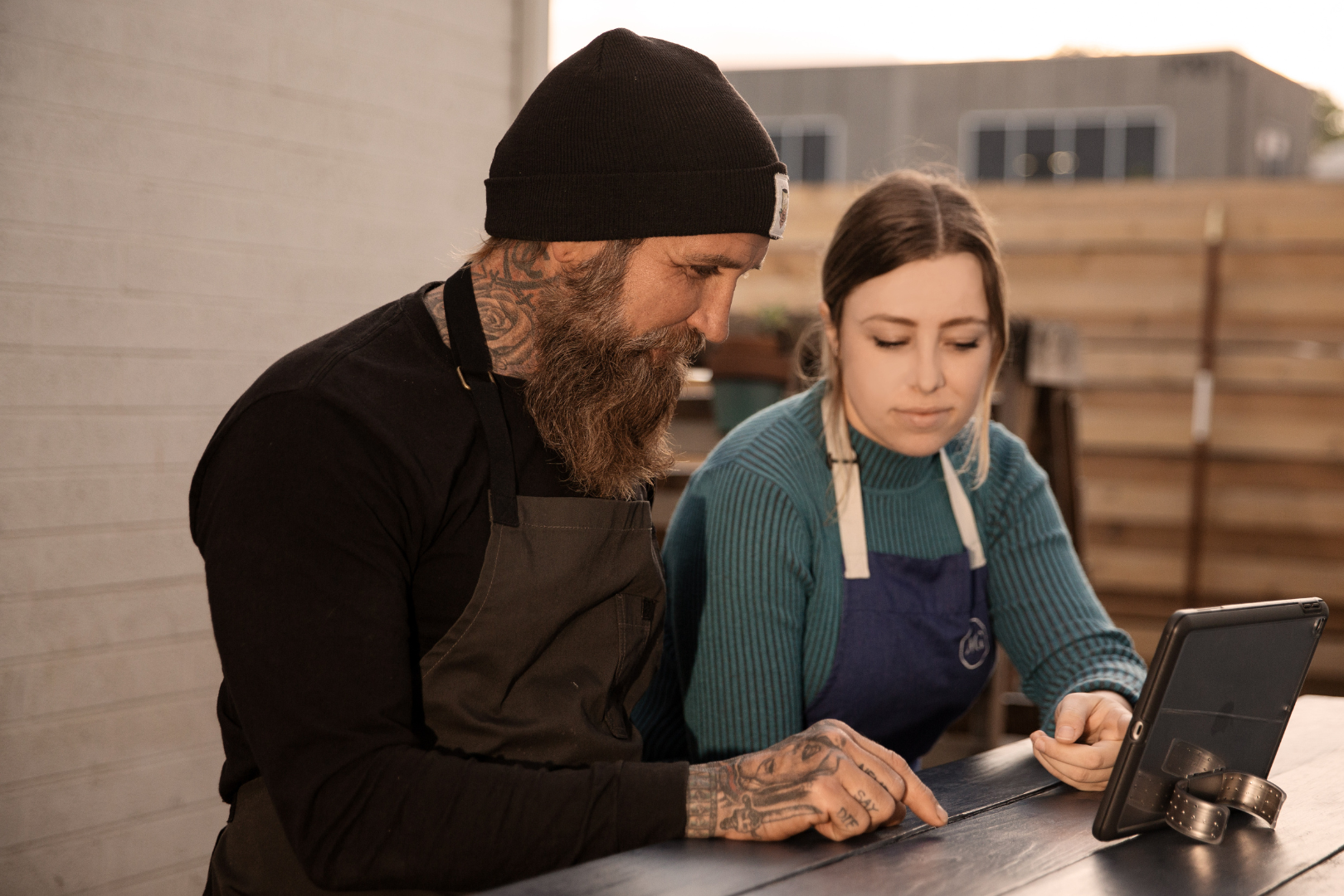Retail coffee benefiting from Information Technology solutions
Written by Marcus Young - sponsored by Cropster
Coffee retailers are increasingly relying on information technology solutions to better serve their customers. With COVID-19, many retailers quickly adopted IT solutions like mobile ordering to stay afloat and continue serving their customers with contactless pick-up.
According to the US’s National Restaurant Association, “the pandemic pushed many [food-service retailers] to quickly adapt technologies that eased operations as they shifted to an off-premises and low-contact model—including online ordering and payments, handheld POS (Point of Sale Systems) devices, and digital menus accessed through QR codes.” This allowed them to enhance customer loyalty programs and drive sales of new products and announce promotions through push notifications. Thanks to POS they were able to increase order accuracy, convey orders to baristas at the bar, and provide sales and trend reporting.
What has been missing is technology for coffee retailers to better manage quality and consistency, improve communications between locations, report on equipment usage, and standard operating procedures.
Coffee software company Cropster, active in the improvement of quality and business management solutions for roasting companies and coffee producers, entered the retail space in 2022 with the launch of Cropster Café, which seeks to improve the workflow and operations for baristas, retailer managers, and wholesale roasters.
Picture by Cropster
Improving workflow, quality and consistency across locations
“Understanding extraction quality across locations and equipment is a huge challenge for cafe owners and wholesale managers as they strive to maintain a consistent customer experience while minimizing variable costs,” says Cropster Cafe Product Manager Isabelle Verschraegen. “Busy baristas clearly should not focus on creating manual brew logs but on making delicious beverages and providing a great customer experience. Retail and wholesale managers shouldn’t have to guess which locations need their attention but know it based on data.”
These manual brew logs are a tedious process, and the technique breaks down for multi-location retailers or roasters selling wholesale coffee to numerous outlets. How can one location across town (or across the country) assure they are brewing coffee consistently with other locations? If a barista is new or struggling with a coffee, how do they seek guidance on how to best prepare it? When a roaster develops a brew recipe, how can they assure it’s being prepared appropriately at each of the cafes they service?
Matthew Brown, wholesale director of Nevada- and California-based Coffeebar, sums up the challenge: “By examining [extraction] info from our baristas on basic recipe components like dose, grinder setting, beverage weight, and extraction time, with more advanced metrics like Total Dissolved Solubles (TDS) and extraction percentage and information on blend components and days off roast, we can build a map of recommended recipes for each individual cafe. Having those starting points then makes it easier for baristas to maintain consistency of flavor, and ultimately present a consistently high-quality product to our guests.”
Cropster Cafe helps simplify this process and facilitates consistency and quality with a centralized recipe database. Now barista managers, trainers, or wholesale roasters can share recipes broadly with multiple locations, making it easy for each location to review recommended brewing recipes and the desired flavor outcomes. Individual locations can update their own brew recipes and share them back with others, assuring a seamless flow of brew data across the company - and ultimately providing customers with consistently high-quality coffee.
Picture by Cropster
Leveraging Internet of Things (IoT) technology for a better Customer experience
IT in cafes all really starts to come together once brewing equipment connects to the internet, and captures brew telemetry over time.
Many of La Marzocco’s newest espresso machines have integrated IoT technology – essentially Wi-Fi connectivity and data logging for its espresso machines, administered with their Pro App. Similar technology is available for other models of volumetric espresso machines with Cropster’s BrewBeacon connector. Cropster Cafe then captures extraction parameters such as shot times, flow meter pulses, temperature, water hardness, and more from connected machines, giving managers, trainers, staff, and others insights on machine usage and consistency.
“[Cropster Café] is a dream come true for a wholesaler like Coffeebar. When we set up a new account, we’ll help them identify their desired flavor profile and set a recipe standard accordingly,” says Matthew. “Then we can use Cropster Cafe to monitor consistency each day. This means we can identify issues and respond to them much sooner, and because of the types of data Cropster gets from the espresso machine, we can often diagnose the cause of any inconsistency.”
Data logging from roasting machines revolutionized the way roasters use data to improve quality and consistency – now baristas and retails have robust digital solutions to focus on quality, operations, and consistency at the retail level. As cafes and coffee houses visualize their data, tracking brew telemetry, sharing brew recipes, and managing tasks will simplify consistency and quality improvement, and provide measurable and actionable insights to where staff may need additional training, equipment needs servicing, or where wholesale accounts need proactive account management.
Digitization of coffee retail is here – and now, with tools like Cropster Cafe and IoT brewers, it’s extending beyond the customer experience to critical operational insights, providing seamless support to retail workers and benefiting final coffee consumers.
Marcus Young
Marcus leads Cropster's market team. Previously he worked as a quality advisor, educator, trader, buyer, roaster, and barista. He helped to build a successful roasting business in Rwanda and worked on behalf of farmers and cooperatives on quality control and market access initiatives. Marcus co-founded Central City Coffee, a social enterprise coffee company providing employment and on-the-job training for employees who were previously homeless.




